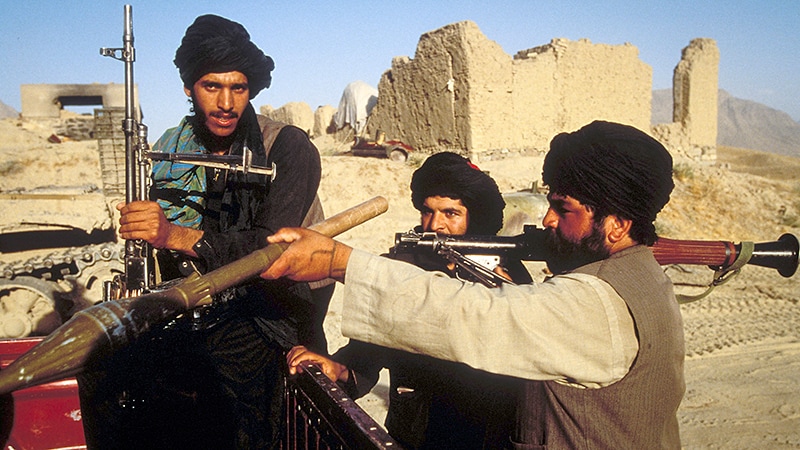Scientific research is becoming one of the casualties as the Taliban again take control of Afghanistan, say experts who have lived and worked in the region.
Kenneth Holland, PhD, dean of academics, research and international affairs at O.P. Jindal Global University in India, was president of the American University of Afghanistan in Kabul from 2017 to 2019.
“The people of Afghanistan are losing one of their most valuable national assets — the scientific mind,” he told WebMD.
Holland says that researchers, funded by the United States government and grants from other Western organizations, “are now in danger, since the Taliban consider anyone who worked for the U.S. or its allies as ‘traitors.'”
Holland says over the past decade, there has been a significant increase in the amount and quality of scientific research done in Afghanistan.
Afghanistan’s terrified scientists predict huge research losses https://t.co/YqDOUG8kiQ
— Dr. María D. Mayán (@MariaDMayan) August 28, 2021
The Ministry of Higher Education, he points out, prodded by one of its major donors, the World Bank, changed the criteria for academic promotion 5 years ago.
“Faculty for the first time were required to publish articles in peer-reviewed international journals in order to be promoted to full professor,” he explains.
The World Bank-funded Higher Education Development Project provided grants to faculty who submitted strong research proposals to the Ministry of Higher Education.
The higher education project and the United States Agency for International Development’s University Support and Workforce Development Project funded upgrades for scientific laboratories and training for lab assistants and technicians.
“The Taliban are suspicious of science in general and scientific research in particular, since they regard Western science as ‘anti-Islamic,'” Holland says. “There are no internal sources of funding for scientific research, and external funding sources are suspect, especially those in the West.”
In an article in Nature, Hamidullah Waizy, a researcher at Kabul Polytechnic University, said across Kabul, most universities and public offices remain closed.
Offices Closed
The Taliban say they want officials to continue working, the article explains, but it is not clear what that means.
“The future is very uncertain,” Waizy told Nature, adding that he has been seeking safety at home.
Academics have been reaching out to colleagues in other countries for help.
Shakardokht Jafari, PhD, grew up in Afghanistan, and her family was forced to flee to Iran when war broke out when she was 6 years old.
She tells WebMD she has worked in Surrey in the United Kingdom for the last decade, and is a visiting researcher at the University of Surrey, but she has returned, now and then, to work as a medical physicist and lecturer in Kabul.
“Because I was among the minority scientists [in Afghanistan], I felt unsafe and my family was unsafe,” she says.
Jafari says she needed the safety and technological capabilities offered in the United Kingdom for her business to be successful.
She has become well-known to her international colleagues for starting her own research company, TRUEInvivo, which is developing radiation-detecting technology to track the amount and spread of radiation therapy in cancer patients to help doctors with more accurate dosing.
The situation in Afghanistan is dire, esp. for engineers, scientists & technical professionals who are increasingly becoming targets of violence. AGU is proud to stand with other professional societies asking @WHOSTP45 for visas. Read the letter here: https://t.co/RX1tsHtoYr
— AGU Science Policy (@AGUSciPolicy) August 30, 2021
She says that in the last week alone, she has heard from more than 1,000 researchers asking her for help and advice on continuing their work.
“They are so confused. They are terrified. They are in hiding,” she says.
Jafari says she is looking for assistance from outside governments that can help her colleagues continue their work outside Afghanistan until it is safe for them to return.
The scientists need to be taken to a safe place, and then helped to integrate their skills into appropriate professional work, she says, so they “don’t end up as a taxi driver.”
She says she has been accused of “contributing to the brain drain” in Afghanistan, but once it is safe, “these researchers are nationalist enough to go back to Afghanistan.”
“I ask the scientific community in other countries not to forget the scientists of Afghanistan,” she says.
An editorial in Nature on Wednesday made a similar plea.
Pleas for Help
“Researchers at risk must be able to leave and to resume their lives in countries that can provide them with safety and security,” the editorial said. “But, at the same time, research leaders in Afghanistan’s neighboring countries — and those farther afield — must work strenuously to support those Afghans who are staying, and who must not be forgotten or neglected.”
The Scholars at Risk organization has issued an urgent plea for help.
Among the requests of European governments and European Union institutions is to “Waive any intent-to-return and home residency requirements that may apply to visa applications for Afghan scholars and researchers for the foreseeable future.”
The Scholars at Risk website says many European higher education institutions are ready to host scholars temporarily, and it asks government leaders to “capture that opportunity by expediting the processing of individuals for whom they are ready to step forward, and providing logistical support.”
Sources
Kenneth Holland, PhD, professor of law, dean of academics, research and international affairs, O.P. Jindal Global University, Sonipat, Haryana, India.
Nature: “Afghanistan’s terrified scientists predict huge research losses,” “The global research community must not abandon Afghanistan.”
Shakardokht Jafari, PhD, visiting researcher, University of Surrey, United Kingdom; founder, TRUEInvivo.
Scholars at Risk: “Urgent appeal to European Governments and EU Institutions: Take Action for Afghanistan’s scholars, researchers, and civil society actors.”

